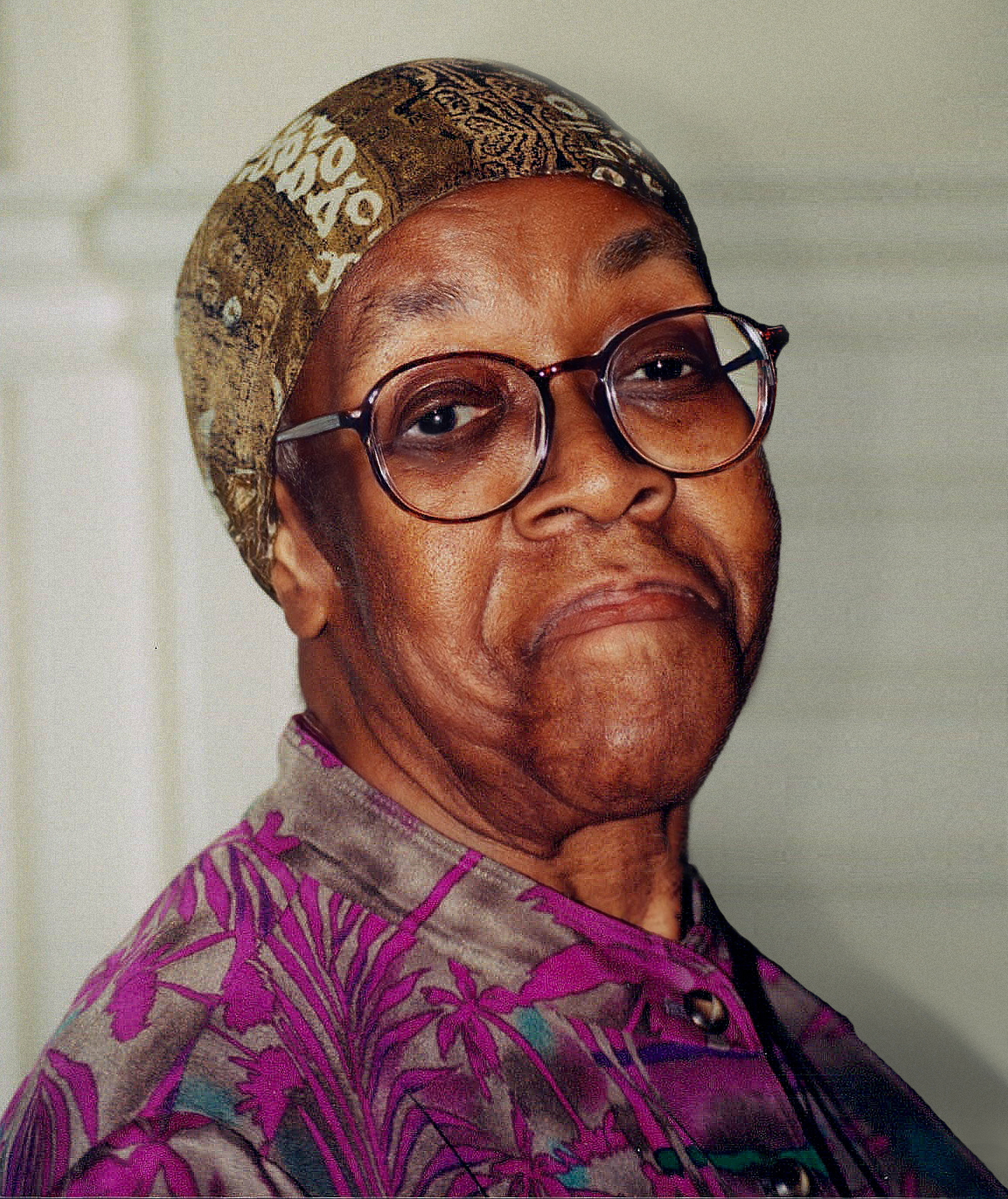39 Gwendolyn Brooks

In This Chapter
Author Background
Gwendolyn Brooks (1917-2000) was an American poet, novelist, and teacher, best known for her significant contributions to African American literature. She was born on June 7, 1917, in Topeka, Kansas, and she grew up in Chicago, Illinois, which would become a central influence on her writing.
Brooks showed an early interest in poetry and began writing at a young age. She attended Wilson Junior College (now Kennedy-King College) in Chicago but did not complete her degree.
Writing Career
Brooks published her first poem, “Eventide,” in a children’s magazine when she was just 13 years old. In 1945, she published her first poetry collection, A Street in Bronzeville, which depicted life in Chicago’s South Side.
Her second collection, Annie Allen, was published in 1949 and won the Pulitzer Prize for Poetry in 1950, making her the first African American to receive this prestigious award.
Brooks went on to publish numerous poetry collections, including The Bean Eaters (1960), In the Mecca (1968), and Blacks (1987), among others. She also wrote a novel, Maud Martha, which was published in 1953 and received critical acclaim.

Themes in Her Writing
Brooks’ poetry often explored the experiences of African Americans, particularly those living in urban environments. She addressed topics such as racial discrimination, social inequality, and the complexities of personal and cultural identity.
Her writing style is known for its lyrical and musical qualities, often incorporating elements of jazz and blues rhythms. Brooks’ poetry is characterized by its keen observation of everyday life and its ability to capture the struggles and aspirations of marginalized communities.
Accolades

In addition to the Pulitzer Prize, Brooks received numerous other awards and honors throughout her career, including the Robert Frost Medal and the National Medal of Arts. She served as the Poet Laureate of Illinois from 1968 to 2000, the first African American woman to hold this position. Gwendolyn Brooks’ work continues to be celebrated and studied today for its significant contributions to American literature, particularly African American poetry.
View the following video from Black Excellist for more background on Gwendolyn Brooks:
Answer the following true or false questions to test your knowledge of Gwendolyn Brooks’ life and career.
You can read many of Brooks’ poems through the Poetry Foundation’s digital archive. Below are two recommendations.
“We Real Cool”
https://www.poetryfoundation.org/poetrymagazine/poems/28112/we-real-cool
“We Real Cool” by Gwendolyn Brooks is a powerful poem that delves into the lives of young people who engage in risky behaviors. Here are some discussion questions to help you engage with the poem.
- Analyze the significance of the title, “We Real Cool.” What does it suggest about the identity and attitudes of the group being described in the poem? How does the title set the tone for the rest of the poem?
- Explore the theme of rebellion and defiance in “We Real Cool.” How does Brooks portray the rebellious actions and attitudes of the group of young individuals? What societal or cultural factors might have influenced their behavior? How does their sense of rebellion affect their outlook on life?
- Discuss the use of language and imagery in “We Real Cool.” How does Brooks convey the energy and confidence of the group through her choice of words and the rhythm of the poem? What effect does the repetition of the word “we” have on the poem’s meaning and impact?
- Consider the broader social and cultural context of the poem. How does “We Real Cool” reflect the experiences and challenges faced by African American youth during the time it was written (1960s)? How does it also address current issues of identity, race, and societal pressures?
“Still Do I Keep My Look, My Identity…”
https://www.poetryfoundation.org/poetrymagazine/browse?volume=65&issue=2&page=18
“Still Do I Keep My Look, My Identity…” by Gwendolyn Brooks is a thought-provoking poem that explores themes of self-identity and the impact of societal expectations. Here are some discussion questions to help you engage with the poem.
- How does “Still Do I Keep My Look, My Identity…” promote individuality and celebrate self-love?
- What is the affect of alliteration and imagery in “Still Do I Keep My Look, My Identity…”?
- Reflect on the universality of the poem’s message. How does “Still Do I Keep My Look, My Identity…” resonate with readers from diverse backgrounds and experiences?
- The poem contrasts the speaker’s identity with societal expectations. How do these comparisons enhance the poem’s message about individuality and conformity?
- The poem touches on the idea of a generational divide between the speaker and society. How does this divide impact the speaker’s sense of identity?
Sources
“Black Excellist News: Gwendolyn Brooks — 1st African American Pullitizer Prize Winner.” YouTube, uploaded by Black Excellent Excellist, https://www.youtube.com/shorts/HmFJqwR00_w
Brooks, Gwendolyn. “Still Do I Keep My Look, My Identity…” Poetry: A Magazine of Verse, Vol. 65, No. 2, Nov. 1944, https://www.poetryfoundation.org/poetrymagazine/browse?volume=65&issue=2&page=18
Brooks, Gwendolyn. “We Real Cool.” The Bean Eaters, Harpers, 1960, https://poets.org/poem/we-real-cool
“Gwendolyn Brooks.” Poetry Foundation, www.poetryfoundation.org/poets/gwendolyn-brooks.
“Gwendolyn Brooks.” Academy of American Poets, www.poets.org/poet/gwendolyn-brooks.
A theme is a central topic, subject, or message within a narrative.
Imagery is visual symbolism, or figurative language that evokes a mental image or other kinds of sense impressions.
Rhythm can be described as the beat and pace of a poem. The rhythmic beat is created by the pattern of stressed and unstressed syllables in a line or verse.
Alliteration is the occurrence of the same letter or sound at the beginning of adjacent or closely connected words.

